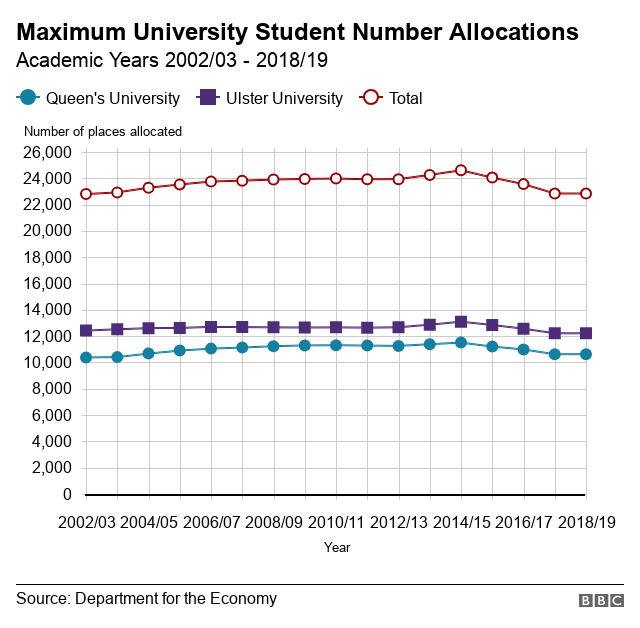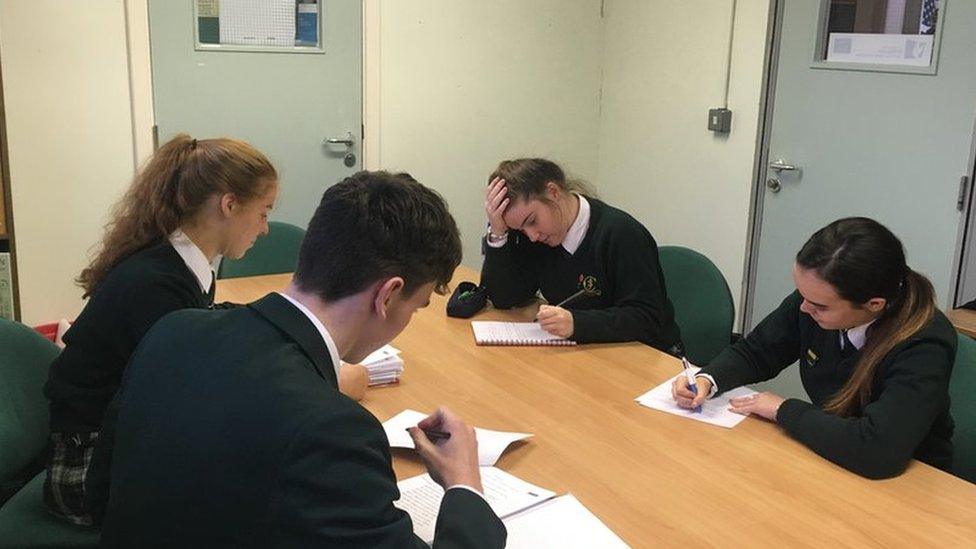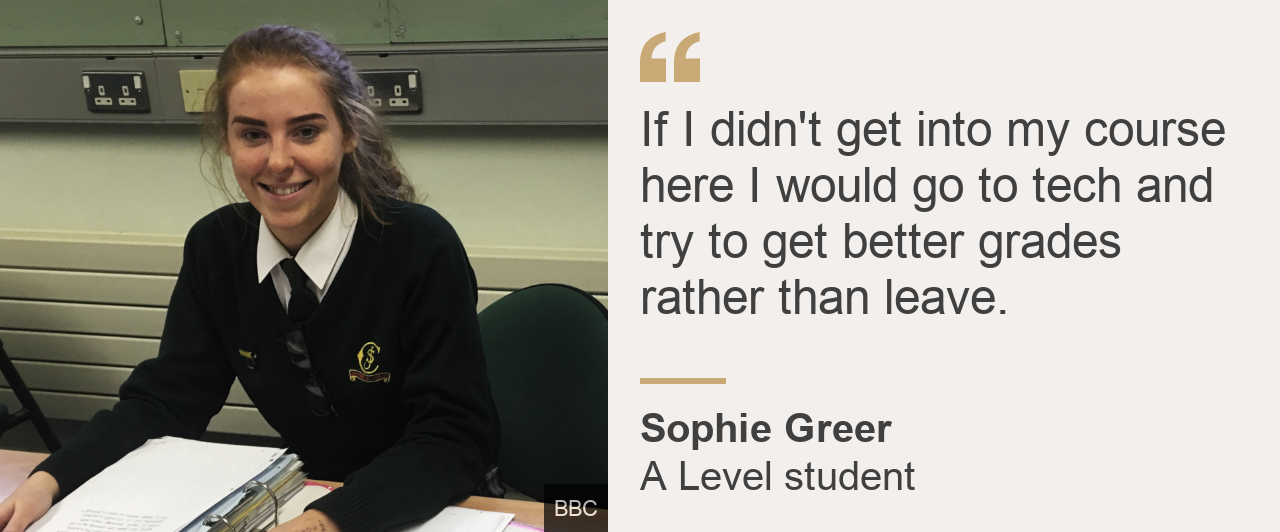Ulster University: 'Crisis point for NI student places'
- Published
- comments

Local universities say the drop in student places is because of funding cuts
A crisis point has been reached over student places in Northern Ireland, according to Ulster University.
In 2016/17 there were 1,800 fewer places for local and EU students at Ulster University (UU) and Queen's University Belfast (QUB) than 2014/15.
The universities say the 7% drop is due to funding cuts from the Department for the Economy (DfE).
The department decides how many student places are available in Northern Ireland.
More than 80% of students that attend local universities are from Northern Ireland.
The DfE set the number of students who can go to university in Northern Ireland based on the funding they receive for higher education from the Northern Ireland Block Grant.
A spokesperson for the department said that "universities need to be sustainably funded with a system that allows higher education to be accessible to students from all backgrounds, as well as being affordable to the taxpayer".
It said that the cap on student places "provides a cost control in relation to the level of student support made available for NI-domiciled students, as well as being a consequence of the available budget for the higher education sector" and that it was "in place to ensure that additional unaffordable costs do not fall on the Northern Ireland Executive".

That is because the executive partially funds each student here, whereas in England and Wales students are usually entirely responsible for their own fees.
The universities say repeated funding cuts have caused the number of places to fall.
Only a small number of EU students attend university in Northern Ireland and the majority of them come from the Republic of Ireland.
The drop in available places is not related to the number of international students, or students from other parts of the UK.
Student numbers
The most recent figures from 2016/17 show that almost 85% of students at local universities were from Northern Ireland.
3.8% of students came from the Republic of Ireland;
5.8% students came from the rest of the UK;
0.7% of students came from other EU countries;
and just over 5% came from non-EU countries.
Local student intake is now at its lowest since 2002/03.
Northern Ireland universities also say there is a continuing and increasing divergence between higher education funding between here and the rest of the UK.
Both universities say they need the Stormont Executive back to make decisions on how to handle the future of higher education funding here.

Local universities say the drop in student places is because of funding cuts
UU vice chancellor Paddy Nixon said "higher education in Northern Ireland has been ignored to the point of neglect".
"More students than ever going on to university and we are losing our talent to the rest of the UK and the world," he said.
"We're at a sort of crisis point… it's absolutely critical we educate for the future."
'We need new funding models'
Both universities say there is a skills gap looming. Sending students away, while so few return, is dangerous for the future of Northern Ireland's economy, they say.
Government statistics show that of the 17,000 Northern Ireland students enrolled at universities elsewhere in the UK only a third return here to work after they graduate.
Professor Ian Greer, vice chancellor at QUB, said that new funding models are needed.
"We can make this funding happen through an increase in public funding or an increase in tuition fees, but it's a matter that should be debated at the executive level."

'There should be more done to keep us here'
Erin Maguire, an A-level student at St. Joseph's Secondary School in Crossmaglen, said that she feels that everyone her age wants to stay at home.
"I don't know anyone who's first choice would be abroad," she said.
"There's a lot of people who would rather take a year out and repeat and try to get the grades than go away.
"There should be more done by the government to keep us here."

Eoghan McMahon told the BBC he really wants to go to Queen's, and said there is a lot of pressure on young people.
"If the government isn't helping us at all, there isn't much we can do to relieve the pressure," he said.
Ciara Quinn, who attends the same school, said: "I think it's a joke really, we need someone to sort out all these issues to get the jobs desired."
Sophie Greer wants to study occupational therapy. She worries the places on her course of choice are limited, but said she would rather go to technical college and repeat her a-levels than leave Northern Ireland for university.
